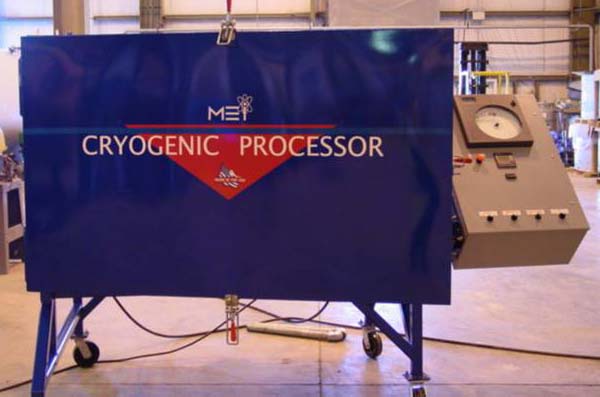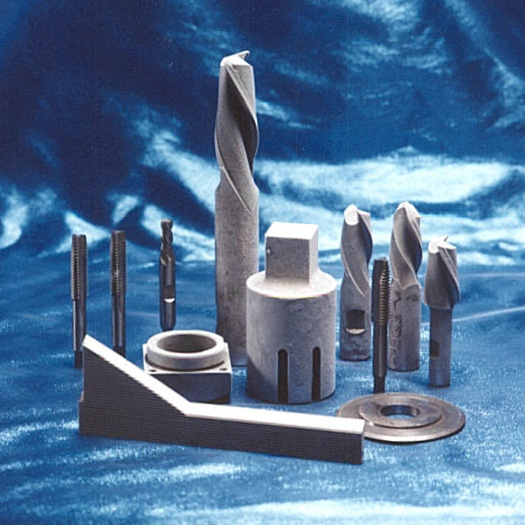Cryogenic Hardening Lengthens Milling Tool Life
BY Sandy Lender

It’s not unheard of to send a new bucket of milling teeth out for “freezing” to extend the cutting bits’ service life. In fact, contractors can take advantage of the process known as cryogenic hardening for any number of tools. But let’s take a look at why a pavement maintenance contractor would do such a thing and what value it offers.
Weigh the Cost
Kathi Bond, the owner of CryoPlus Inc., Wooster, Ohio, said, “Any tooling or wearable parts are candidates for the cryo process.”
Brian Handshoe, vice president of operations for Kenco Engineering Inc., Roseville, California, said his company uses the cryogenic process to harden pugmill mixer tips, slat conveyor floors and other components as requested, but not all components manufactured by Kenco get the cryogenic conditioning. The reason? Choices. Not all asphalt professionals want the higher price point at the outset.
“We have a standard 550 version of pugmill mixer tips,” Handshoe said. “Then we have a 700 version that are cryogenically treated. The customer has options.”
The option dramatically increases wear life, according to Handshoe. “Cryogenic hardening will typically add 15-20 percent to the price, but typically increase the wear life about 20-50 percent.”
Let’s say you buy a bucket of teeth for $580 and you expect them to get you through 16 hours of asphalt milling. You could add about $116 to your overall cost by having the bits cryogenically hardened, and could extend their service life up to an extra eight hours. It’s up to each contractor to decide if that’s a good return on investment.
Change the Molecules

While it’s not possible to tell which tools have been treated and which have not just by looking at them, the material hardness can be improved 1 to 2 Rockwell Hardness (HRC) points with the dry process, according to CSA’s website. Photo courtesy of CryoPlus
The Cryogenic Society of America Inc. (CSA) is a non-profit technical society serving people who are interested in any phase of cryogenics. Cryogenics, according to the CSA website, “is the art and science of achieving extremely low temperatures—almost absolute zero.” Visit the website cryogenicsociety.org for a database of entities, such as CryoPlus, that provide cryogenic hardening services for tools.
The CryoPlus website describes cryogenic processing as “the deep chilling of tool steel so that the molecular structure of the metal is brought to ‘cryogenic stillness’ in order to improve wear characteristics.”
The editorial team at Gear Solutions found that, “Companies keep their processing techniques a secret to maintain a competitive advantage.” Luckily, Bond and Handshoe were willing to share information for educating the industry.
“Every alloy has to be treated differently,” Handshoe said. He explained that components and tools will be treated for multiples of hours at a few hundred degrees below zero, but the atmosphere at which this takes place is important to the process as well.
“We usually start the processor on Fridays and ship out on Mondays, as long as we have enough to run it,” Bond said. She explained that because every tool, every brand, and every type of material and surface the treated tool will be used on are different, the contractor will want to run his or her own tests to judge what kind of extended wear life can be experienced. “We offer minimal pricing for first-time users so they can run the tests,” Bond said.
For more information about cryogenic hardening of tools, reach out to the sources listed in this article. Brian Handshoe can be reached at kencoengineering.com or (916) 782-1725. Kathi Bond can be reached at cryoplus.com or (330) 683-3375.
